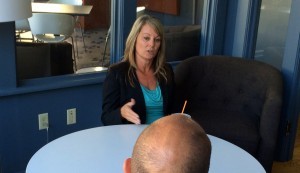As Idaho moves into the realm of mastery-based education, the state is getting unpaid help from a prominent education reform group.

But the Foundation for Excellence in Education — founded by GOP presidential candidate and former Florida Gov. Jeb Bush — is itself a newcomer to mastery. During a meeting with the State Board of Education in May, a foundation official said the group has not worked with any other states on implementing mastery programs.
Idaho is making a slow but significant shift toward mastery-based learning — in which students move from class to class based on command of a subject, not seat time. Idaho’s mastery movement has been in the works since at least 2013, when Gov. Butch Otter’s education task force recommended the concept. The 2015 Legislature followed up with a law to launch 20 mastery pilots across the state in 2016-17.
The state has no contract with Bush’s foundation, said Jeff Church, a spokesman for state superintendent Sherri Ybarra. And while the mastery pilot law earmarked $400,000 for the launch, the foundation is receiving no money for its work, he said.
Ybarra has met on two or three occasions with Karla Phillips, the foundation’s state policy director of competency-based learning. Phillips has joined state officials as they meet with local school superintendents, to answer questions about the mastery pilot program.

Phillips’ primary role is to help track mastery-based programs in other states and help Idaho identify successful ideas. Nonetheless, Idaho will develop its own plan. “Superintendent Ybarra is adamant on doing it the Idaho way,” Church said Monday.
The courtship between the Tallahassee, Fla.-based education foundation and state officials has been a circuitous one.
The foundation approached state officials after the 2015 legislative session, offering to help the state develop a public awareness campaign about mastery-based learning. The awareness campaign is one plank in the 2015 mastery law.
The foundation has also offered to help the state select mastery pilot schools for 2016-17.
The foundation’s working relationship with Idaho is not unique, Otter spokesman Jon Hanian said Tuesday. “The foundation has funding to help a few states with mastery-based initiatives.”
The foundation says Phillips has been working with officials in Utah and Florida on mastery programs. But when the question of experience came up a few weeks after the Idaho legislative session — during a May 20 State Board of Education meeting — Phillips downplayed the foundation’s experience. At one point, board member Debbie Critchfield asked Phillips if the foundation had partnered with any other states on mastery. Phillips said the foundation hadn’t done so, according to minutes from the board meeting.
The questioning wasn’t confrontational, State Board spokesman Blake Youde said Monday, and falls under the heading of due diligence. “They have responsibility as board members to just kind of ask for those details.”
Ultimately, the State Board took no action. Ybarra, a board member, reminded the seven gubernatorial appointees on the board that the mastery pilot law gave her State Department of Education the lead role on the project.
The Foundation for Excellence in Education advocates for a range of school reforms, from digital learning to school choice to “outcome-based funding” that ties budgeting to student achievement.
Even before the state began working with the foundation on mastery, Phillips was tracking Idaho’s legislation. In a March 27 blog post, she praised lawmakers for making the “significant cultural transition” to mastery.
“Idaho lawmakers clearly understand that the demonstration of true mastery is necessary to increase the number of people entering the work force with a postsecondary degree or certificate,” she wrote.
